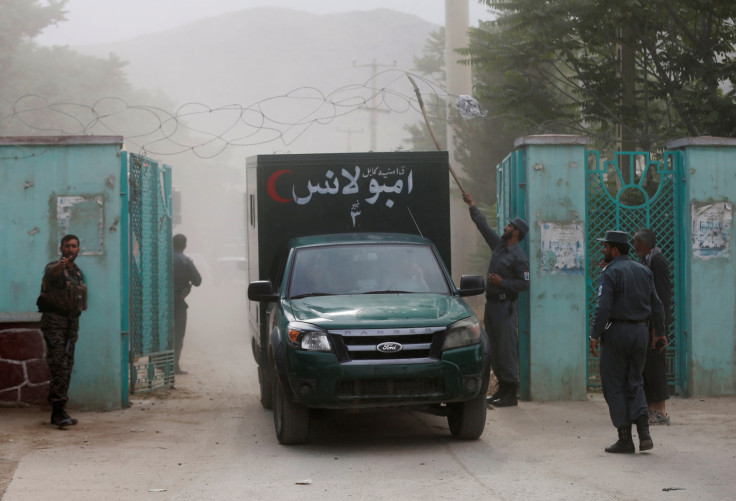More heartache and bloodshed in Afghanistan as bombs rip through funeral in Kabul
Victims were attending the funeral of Salim Ezadyar who was killed during protests calling for more security.
At least seven people have been killed on 3 June in a series of blasts in Kabul, capital of Afghanistan, officials have said. The victims were attending a funeral where government officials, including members of parliament, were present.
Three explosions set off by suicide bombers rocked the cemetery where Salim Ezadyar, the son of Senator Alam Ezadyar, was about to be buried, said Najib Danish, Interior Ministry deputy spokesman.
It is not yet clear who is behind the attacks.
Afghanistan's chief executive Abdullah Abdullah was in attendance at the funeral and appeared live on television afterward. He said the explosions came from a trio of suicide bombers and demanded an investigation into how the attackers were able to get so close to a funeral attended by senior government officials.
Abdullah also called for an investigation into whether police used live fire against protestors on Friday.
Wahid Mujro, spokesman for the Public Health ministry, said 87 people were wounded.
Ezadyar was killed during a protest that took place in Kabul on Friday (2 June). More than 1,000 people demonstrated calling for more security in the capital, following a truck bomb attack that killed at least 90 people and wounded more than 450 on 31 May.
Between two and eight people were killed during clashes with police. Security forces fired tear gas, warning shots and used water hoses to disperse rock-hurling demonstrators who where trying to move closer to the presidential palace.
On Saturday, Gen. Murad Ali Murad, deputy interior minister, urged demonstrators to disperse because of a high security threat level in the country. He also called on members of the public not to join the demonstration.
President Ashraf Ghani, meanwhile, met with senior security officials during an emergency security meeting. A statement from the president's office said the meeting called for an investigation into the nature of the deadly violence at the protest.
Ghani spoke briefly on television and call for national unity.
"Terrorist groups plot to sow chaos. Their aim is to create poor governance and disorder in communities," he said. "We must not let ourselves fall into the trap that the enemies have brought to our country."
The truck bomb blast on 31 May was one of the worst terror attacks in Afghanistan, which has been rocked by violence at the hands of militant groups, including the Taliban and Isis.
So far no-one has claimed responsibility for the May attack. Taliban spokesperson Zabihullah Mujahdid said in a statement that the militant group was not involved.

© Copyright IBTimes 2024. All rights reserved.






